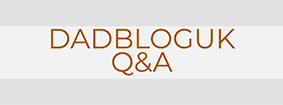Building confidence in children is vital for their development. Doing so during the COVID-19 crisis, however, comes with challenges as parents are working from home while homeschooling and children’s other emotional needs may take priority.

Natalie Costa runs Power Thoughts, a coaching service for youngsters. With a background in both education and psychology, Natalie created a programme, which aims to help children grow in confidence, feel happier and deal with big moments in their lives such as school transitions.
Natalie contributed to an article I wrote last year about preparing your child for their first residential school trip. Ever since then I have kept an eye on her Instagram feed because it’s always uplifting and full of ideas for building your child’s confidence.
Coronavirus has had a massive impact on our children. I could think of no one better to approach and ask for advice on how to speak to children about the anxieties and pressures they may be feeling and how to deal with them. When putting the questions together, I couldn’t resist asking about building confidence in children more generally and also looking to the future, such as when the schools reopen. I hope you’ll agree Natalie had some very interesting things to say.
You’ve got a background in education. What are the main challenges you think parents will be facing right now as they work from home and homeschool and how should they be dealing with them?
From chatting with clients and parents, many challenges have to do with the juggle of working from home, having to keep up with the home learning, daily running of the house, etc. When it comes to home learning, parents are telling me that they feel overwhelmed by the school content, or sometimes struggling to understand how to teach it (EG phonics / long division etc.) It’s also a juggle trying to fit in their own work commitments too.
My advice would be to lean into what feels good for you and your family. Some families have chosen to only commit to an hour a day of structured learning followed by more free, self-focused activities. Other families have opted to NOT doing any school learning but rather explore learning in different ways through practical life skills (cooking, building a chicken coop! fort building etc.)
I would also suggest that you lower your expectations and take the pressure off. The primary concern right now is to come back to a place where we feel grounded and safe. Some days we may be able to get through some of the tasks, other days may require a pyjama movie day because it all feels too much. This is not ‘homeschooling’ that we’re doing, as that is a choice. At the moment we are trying to manage and survive in a crisis, so be kind to yourself.
Alternative activities could include: Free writing based on a documentary they’ve watched, or making animal models out of clay, research project based off a documentary too.
Bring maths into everyday activities such as buying groceries. Older children use division, multiplication etc. Younger children can sort items into different shapes, groups etc. Listen to an audio story and write your own ending. Baking and cooking are great to bring in mental math skills too.
Break learning into smaller chunks. Perhaps it’s 10 min reading with your child and they then move on to a self-focused activity. Encourage older sibling help the younger ones. Some families that I have been working with set up a ‘learning / working space’ that is a separate space so that children associate that space with their learning. Structure and routine are important, but do what fees good for your family. Don’t be caught up in the comparison trap if your routine is very different to the colour coded timetables that’s shared on social media. Perhaps start the day with some sort of movement activity (walking, PW With Joe Wicks etc.) and end the day with a gratitude activity.
Celebrate the small wins every day! Not everyday will look the same so be kind to yourself.
You make quite a few comments on social media about children living with anxiety. You must be finding many children are quite anxious at the moment as their routines have been completely disrupted and all the news regarding COVID-19?
Yes, quite a few children are expressing feelings of worry, nervousness and feel overwhelmed with the changes. Our routines and structure have changed. They miss their friends. One little client said, “This is boring. We lose all the best bits of school, like playing games, after school clubs etc. and just keep the worst bits and the learning is hard too because I can’t always ask my teacher or my parents for help.”
What signs should parents look out for that their children may be distressed at this time?
This can show up in many different ways. For some children it may be that they are more clingy than normal, perhaps seeking more reassurance. For others it can result in tears and emotional meltdowns, or angry outbursts. And other clients of mine are having trouble when it comes to sleeping. Again, seeking more reassurance or perhaps being more clingy than what they would normally be.
More of a statement than a question, but wouldn’t it be more worrying if your child wasn’t showing some signs of being concerned by world events? After all, us adults are!
Good question! Well, in some cases children I’m working with are not that concerned. There may have been the initial wobble when the changes originally occurred but they seem to have settled pretty smoothly into the ‘new normal.’ I’d say a reason they may not be that concerned is because they are not yet fully able to understand the real effect this has. From my experience, the concerns have more more to do with immediate issues (EG: Not seeing friends, not being able to play outside etc.)
What are the three main three things parents should keep in mind when speaking to children about Coronavirus?
Don’t be afraid to talk about it. Allow them the space to open up. Start by asking open questions EG: What do you know about it? What have you heard? And then be guided by their questions and statements, rather than overloading them with too much info. Keep it factual and try to remove drama or emotion from it. Don’t be afraid to talk about it. Create the space for them to share their feelings and know that it’s ok to feel the feelings that they are feeling.
Are there words or phrases you think us mums and dads should avoid using when talking about Coronavirus?
I think touching on what I mentioned above. Try to remove the emotion / drama from the situation. Also avoid watching the news, so not saying things like, “This is a terrible virus -thousands of people are dying.” Yes, this is the reality but it won’t serve children having this over-dramatised.
Focus on what we can do in this moment. How can we help? (washing our hands, following the guidelines, etc.) Also shift the focus to what positive / good things are also currently taking place in the world. The Happy Newspaper is a great example of positive things also taking place in the world.
Following on from the above, what pitfalls should parents avoid at times of stress like this? I’m sure many well-meaning mums and dads try and discuss worrying news events with their kids but make some common mistakes?
Avoid watching the news with children. Rather watch something like Newsround that shares news in a child friendly manner. Also, monitor your conversations. Little clients of mine have shared they felt worried because of what they overheard their parents say so be mindful of your conversation if children are nearby. And be mindful of your own stress levels too. If you are feeling anxious use some resources to help you (Chloe Brotheridge and Owen Okane share some brilliant tips to manage anxiety)

Looking to the future, how should parents help their children with the transition back to school when they re-open?
It will be an adjustment and it will take time get used to. It may be helpful to reflect with your child how they were able to adapt just recently over these last few months. Explore how the recent changes have made them stronger, braver and more resilient… so how can we use some of these skills to help with the changes that are due to come when they go back to school.
Again, allow the space to talk about these feelings and share the facts as and when we know it so that they too can start to get used to the idea. It’s also helpful to brainstorm what children can look forward to when they go back to school and have this up as a visual reminder of what there is to look forward to.
Putting Coronavirus aside, you talk a lot about children and their ‘big emotions.’ What are those emotions?
Big emotions generally include feelings of anger and emotional outbursts, but on the flip side it’s also the feelings of worry, overwhelm, stress that takes over when they feel triggered (whatever that trigger may be.)
What is the danger of parents failing to validate their offspring’s emotions?
We really want to try and encourage our children to build and develop their emotional, awareness as doing so helps them to learn how to express their feelings and also become aware of the range of feelings that we feel. I encourage children to learn ‘I messages’ to say what they feel and what they need. By validating their feelings, it shows the we ‘hear’ them. By showing empathy we build our connection with them and it makes them feel heard; “I can see that you’re feeling angry right now and that you’re really struggling with this.” After validation we can help them explore options to work through their feelings.
What are the three top tips you recommend for building a child’s confidence?
- Reflect back to a time that they overcame a challenge / solved a tricky problem. Explore what they had to do in order to overcome that challenge. What did they learn from it? Help them see that they have been able to do tricky things.
- Notice self talk and model trying to be your own best friend. Instead of saying; “I’m rubbish at fractions,” they could say; “I’m learning to improve, or with practice I’m getting it right.” We have to learn to be our own inner cheerleader / superhero when it comes to our self-talk and learning not to believe every thought that we think!
- Take action. Confidence is developed when we take action. If things feel too big, look at ways to break them down so that children take small steps out of their comfort zone.
I’ve noticed you speak a lot about the importance of affirmations. What are they and why are they so important to building confidence in children?
Our ‘self talk’ is key. We think 60,000 to 80,000 thoughts a day yet we’re not consciously paying attention to all that we think. Getting into the habit of speaking kindly to ourselves and shifting our self talk will go a long way when things are tough. The words we say have to mean something to us too.
For example, If I have a thought that “I’m rubbish at spelling” it may feel strange to start thinking “I’m brilliant at spelling” because I may not be that great at it. I could, however, start to say, “With practice I’m getting better at spellings” or “With more time I will improve my spellings.”
Our thoughts impact how we feel which influences how we behave and the actions we take. By beginning to speak more kindly to ourselves and to use more empowering language we’ll start to feel more confident and empowered, and take action.
There will be parents out there, like me, with a child who is in Yr6 (or was until March 23!). How should they tackle the subject of transition to secondary school because the usual, formal transition process is unlikely to take place?
This is tricky as at the moment, we don’t know what is going to happen. Allow the space to talk about the changes and also how it will look different to what we know. Allow the space to feel the feelings.
Often children may worry about so many things but a lot of what we worry about is based in the future and it being out of our control. Bring them back to the present moment; What I can do in this moment that will set me up to be in the best place for when change take place? Again, reflect back to previous changes that we’ve had to adapt to: How did we grow? What did we learn from them? How can I use this to help me adapt to next change?
Following on from the above (and a question from my daughter!): Does it take a long time to settled?
I’d say allow a full term (autumn term) Things will be very different: The structure, timetable, classes etc. But from experience children seem more settled and in a new flow by the time January / February comes around.
How can someone find out more about your work and resources you produce focusing on building confidence in children?
You can find my website PowerThoughts.co.uk by following this link at or follow me on Instagram.
I also have two activity books out, Find your Power and Stretch your Confidence for children who are 6 – 12 years of age.







